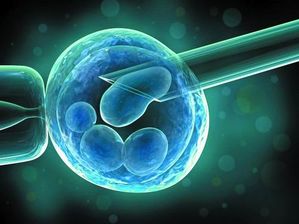

 |
| Chinese scientists discover the key effects and regulatory mechanism of cell remodeling in reprogramming. (Picture/China.com.cn) |
Chinese scientists recently discovered the key effects and regulatory mechanism of cell remodeling in reprogramming. This discovery will extend people's understanding of how cell remodeling can affect the cell itself and provide strong support for the treatment of diabetes, cancer, and neurodegenerative diseases.
The research, conducted by Pei Duanqing and Qin Baoming, has been published in the international academic journal Nature Cell Biology.
Researchers explain that adult cells are just like a room for a certain use, and all the items in the room decide whether it is an office, a shop or a house; while embryonic stem cells (ESC) are more like an empty room, it can be turned into any kind of room with different decoration. The process of reprogramming adult cells and turning them back into ESCs is just like getting rid of all the items and decorations in the room and leaving only the basic facilities, which is considered the vital process in the rejuvenation of cellular structure.
In 2006, Japanese scientists established the technique of induced pluripotent stem cells (ips cell) and achieved the process of adult cells transforming into ips cells. However, the technique still faced many issues requiring to be resolved. "Under certain circumstances, like in hunger, cells will voluntarily degrade their cytoplasmic components, which is known as autophagy. Previous research showed that autophagy has a key effect during the early stage of reprogramming. However, we have found that autophagy not only is unnecessary during the reprogramming process, but can actually have a blocking effect. Reprogramming is much more efficient without autophagy and can result in more normal and functional ips cells," said Pei Duanqing.
This article is edited and translated from 《我国科学家发现细胞在结构上“返老还童”的关键机制》,source: Xinhua, author: Wu Jingjing
 J-11 fighters in air exercise
J-11 fighters in air exercise Beauties dancing on the rings
Beauties dancing on the rings Attendants-to-be join Mr. & Miss Campus Contest
Attendants-to-be join Mr. & Miss Campus Contest Beijing's toughest anti-smoking law takes effect
Beijing's toughest anti-smoking law takes effect Family lives in cave for about 50 years in SW China
Family lives in cave for about 50 years in SW China PLA soldiers operating vehicle-mounted guns in drill
PLA soldiers operating vehicle-mounted guns in drill Blind carpenter in E China's Jiangxi
Blind carpenter in E China's Jiangxi China hosts overseas disaster relief exercise for the first time
China hosts overseas disaster relief exercise for the first time 20 pairs of twins who will become flight attendants in Sichuan
20 pairs of twins who will become flight attendants in Sichuan Obama is sowing discontent in S.China Sea
Obama is sowing discontent in S.China Sea Rescuers work through night to reach cruise ship survivors
Rescuers work through night to reach cruise ship survivors Driving through limbo
Driving through limbo Facing down MERS
Facing down MERSDay|Week